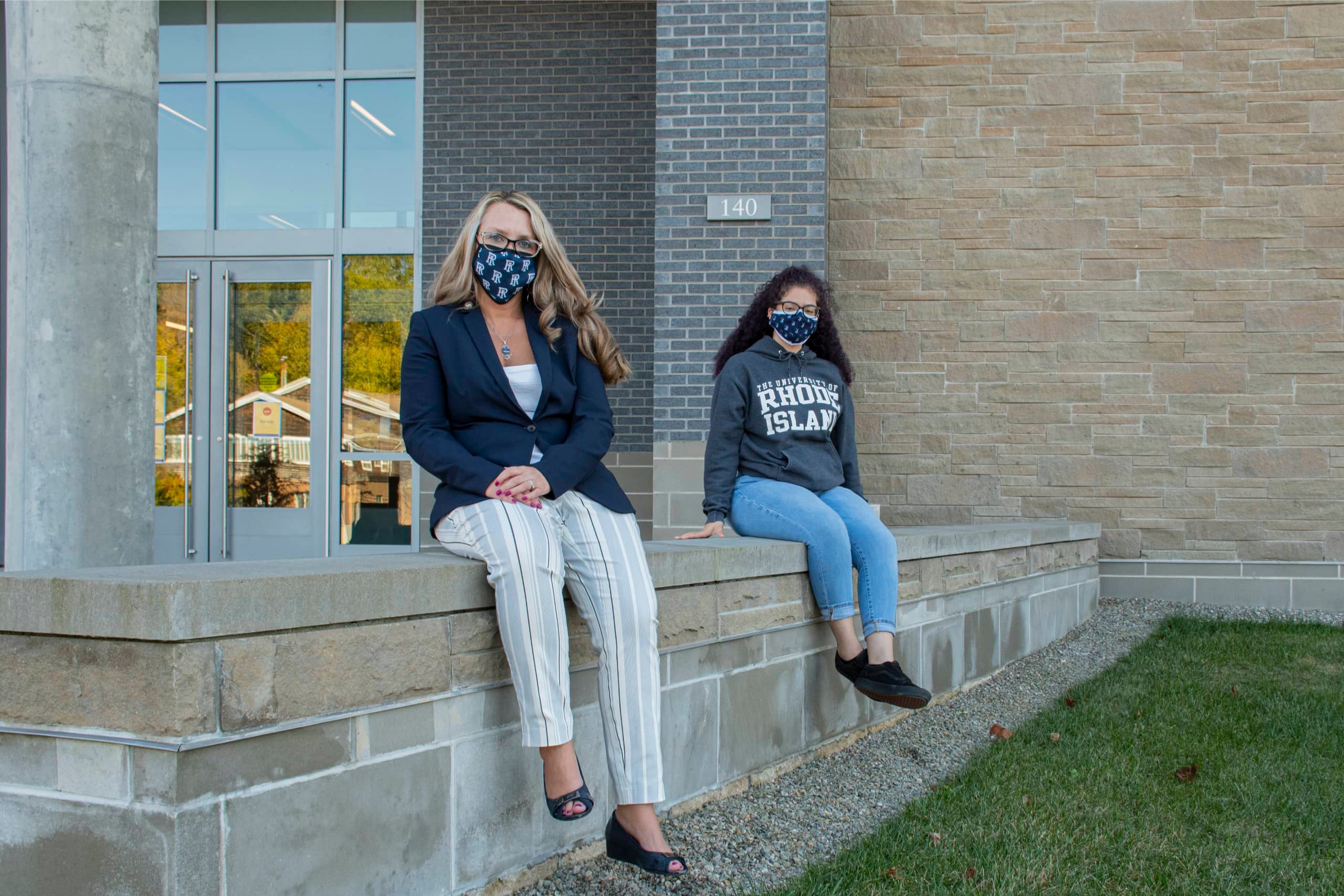
Before their Zoom class starts, the students in CSV 302 Community Service at URI are deep into an animated discussion of tragus piercing, that is, piercing of the ear’s cartilage rather than the lobe. A note to the uninitiated: It’s a painful experience.
Their teacher, Kimberly Stack, grins and provides the voiceover, “You always learn so much in this class.” These upper-level students are in good spirits, but serious about what drew them to this class. They are URI 101 student mentors, training to assist URI 101 teachers in class presentations, foster a general sense of belonging in first-year students, and help them transition into college.
Stack is the director of the Center for Career and Experiential Education in the University College for Academic Success, which oversees URI 101. “URI 101 allows us to take the pulse of what’s happening at URI,” she says. “We discuss barriers to success. We share resources.”
The URI 101 tradition
The URI 101 program has its complement in the 3,000 colleges and institutions of higher education that, in the last 50 years, have used some variation on the theme to introduce students to their new college or university. An early adopter of the transition-to-college course model, URI is celebrating the 25th anniversary of URI 101 this year. The University runs about 150 sections of URI 101 each fall.
A one-credit, academic planning seminar for first-year and some transfer students, URI 101 sets the foundation for a student’s academic life. Most sections group students according to their major and are taught by faculty who work within that discipline. If a student does not have a major, the instructors help them in their decision-making. URI 101 assists students in finding the right major through a four-step process that takes into consideration a student’s personality and skill set, says Jayne Richmond, dean of University College for Academic Success. And while the goal is to plan, define, and develop the skills that contribute to each individual student’s academic success in their major, URI 101 covers a broad range of topics, including self-care, campus life, and using technology tools.
A space of caring
And then there are the critical immeasurables. “We’re creating a space of caring. Caring that you’re eating, caring that you’re sleeping, caring that you’re happy. Just this week, I’ve had three students approach me to say they need a one-on-one time with me. The mentors create that same sense of care,” Stack says.
“At its heart, URI 101 is about retention and student success,” Richmond says. First-year and transfer students can be a vulnerable population, she explains. Any number of situations, small and large, can undermine a student’s academic and social success. Roommate conflicts, difficulty making friends, even filling out a class schedule can be an obstacle.

—Luis Grijalva

—Serena Russell

—Eric McKinney
A place to talk about anything
Mentor Raquel Lopes ’23 credits URI 101 with helping her choose a major and much more. Lopes switched majors several times before settling on biomedical engineering. Now, as a mentor, Lopes says she has a strategy for helping other students to chart their academic path. “When you open up about yourself and give your own backstory, it helps students see you more as a human being,” Lopes says. “URI 101 is a great place to talk about literally anything. And as students see you being open and caring about what’s going on in their lives, they realize that this is a place where they can be open, too.”
And URI 101 continues to benefit the student mentors, too. For at least one student, it has made clear a future career path. Lindsy Duarte ’23 plans on being a counselor. “When I set someone on a path, it makes me feel better,” Duarte says. “I want people to know we’re all here to help each other.”
“I used to be extremely introverted,” Lopes says. “Mentoring has opened up so many doors, and I am so happy where I am right now. I’m a more confident, well-rounded person.”
